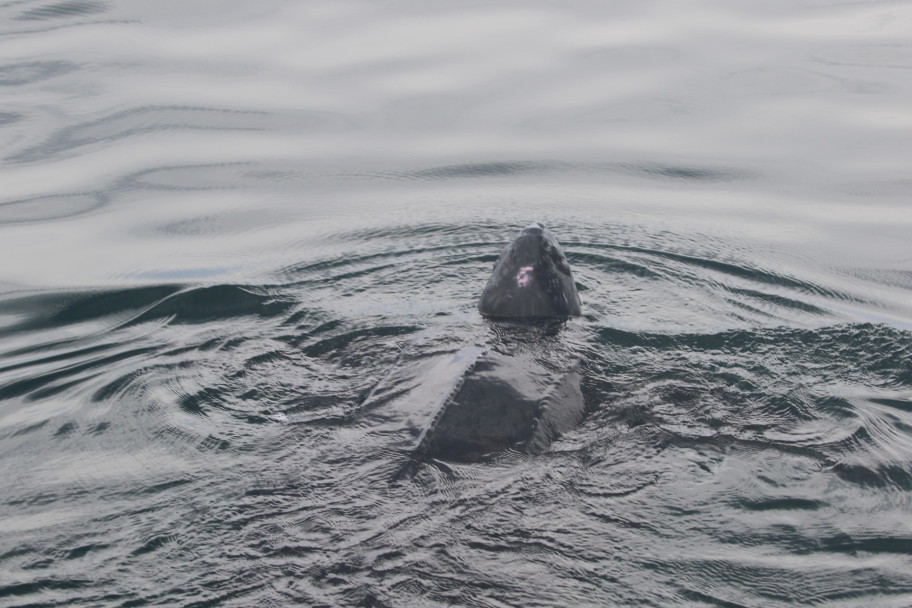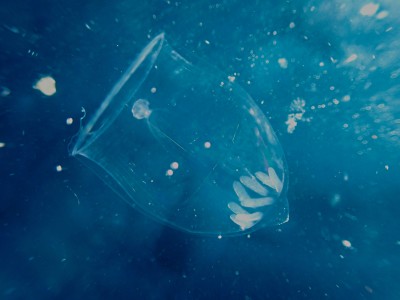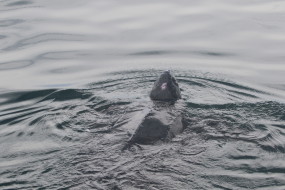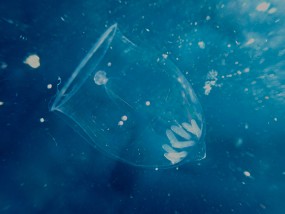
Featured news
Scientists track world’s largest turtles to previously unknown foraging locations
Using movement behavior models, scientists tracked leatherback sea turtles to new foraging locations off the US east coast


Featured news
Using movement behavior models, scientists tracked leatherback sea turtles to new foraging locations off the US east coast

Featured news
At Frontiers, we bring some of the world’s best research to a global audience. But with tens of thousands of articles published each year, it’s impossible to cover all of them. Here are just five amazing papers you may have missed.

Featured news
New findings imply that the interpretation of emotional facial expressions is shaped by the language and culture embedded in our minds

Featured news
Scientists used DNA metabarcoding to show for the first time that jellyfish are an important food for amphipods during the Arctic polar night in waters off Svalbard, at a time of year when other food resources are scarce. Amphipods were not only observed to feast on ‘jelly-falls’ of dead jellyfish, but also to prey on live jellyfish. These results corroborate an ongoing ‘paradigm shift’ which recognizes that jellyfish aren’t a trophic dead-end but an important food for many marine organisms.

Featured news
In a new Frontiers’ guest editorial, Prof Dr Lembit Sihver and his co-authors explore the impact the microbiome has on human health in space. They also discuss potential applications as well as challenges of the study of the microbiome of astronauts.

Featured news
Using movement behavior models, scientists tracked leatherback sea turtles to new foraging locations off the US east coast

Frontiers news
Thanks to the crowdsourcing dynamic of open science, we promptly acted upon the community feedback on the AI-generated figures in the article "Cellular functions of spermatogonial stem cells in relation to JAK/STAT signaling pathway", published on 13 February 2024. Frontiers has now retracted and removed the article from the databases to protect the integrity of the scientific record.

Frontiers news
In January, Frontiers hosted a discussion forum for United States-based research funders to explore the challenges and opportunities funders face in supporting and incentivizing open science.

Featured news
At Frontiers, we bring some of the world’s best research to a global audience. But with tens of thousands of articles published each year, it’s impossible to cover all of them. Here are just five amazing papers you may have missed.

Featured news
New findings imply that the interpretation of emotional facial expressions is shaped by the language and culture embedded in our minds

Featured news
Scientists used DNA metabarcoding to show for the first time that jellyfish are an important food for amphipods during the Arctic polar night in waters off Svalbard, at a time of year when other food resources are scarce. Amphipods were not only observed to feast on ‘jelly-falls’ of dead jellyfish, but also to prey on live jellyfish. These results corroborate an ongoing ‘paradigm shift’ which recognizes that jellyfish aren’t a trophic dead-end but an important food for many marine organisms.

Frontiers news
Dr Gabby Ahmadia is vice president of Area-Based Conservation for the Oceans program at WWF-US, where she oversees science teams working together in priority regions around the globe, from the Pacific to Indian Ocean. We talk about the importance of strong international collaboration and addressing power dynamics to overcome the pervasive practice of parachute science, while also tackling issues of being a woman in science.

Featured news
In a new Frontiers’ guest editorial, Prof Dr Lembit Sihver and his co-authors explore the impact the microbiome has on human health in space. They also discuss potential applications as well as challenges of the study of the microbiome of astronauts.

Research Topics
We have compiled a list of 10 Research Topics that embrace the potential of technology to advance scientific breakthroughs and change the world for the better.

Featured news
A survey of people who had been diagnosed with Covid-19 but never hospitalized found that 76% developed insomnia — and anxious or depressed people were more vulnerable.

Institutional partnerships
The latest news on our collaborations with research institutions, libraries, consortia, and funders.

Publishing partnerships
Gold open access publisher Frontiers will publish the journal Pastoralism: Research, Policy and Practice, under a new agreement signed with the Odessa Centre. The agreement marks Frontiers’ first publishing partnership in the field.